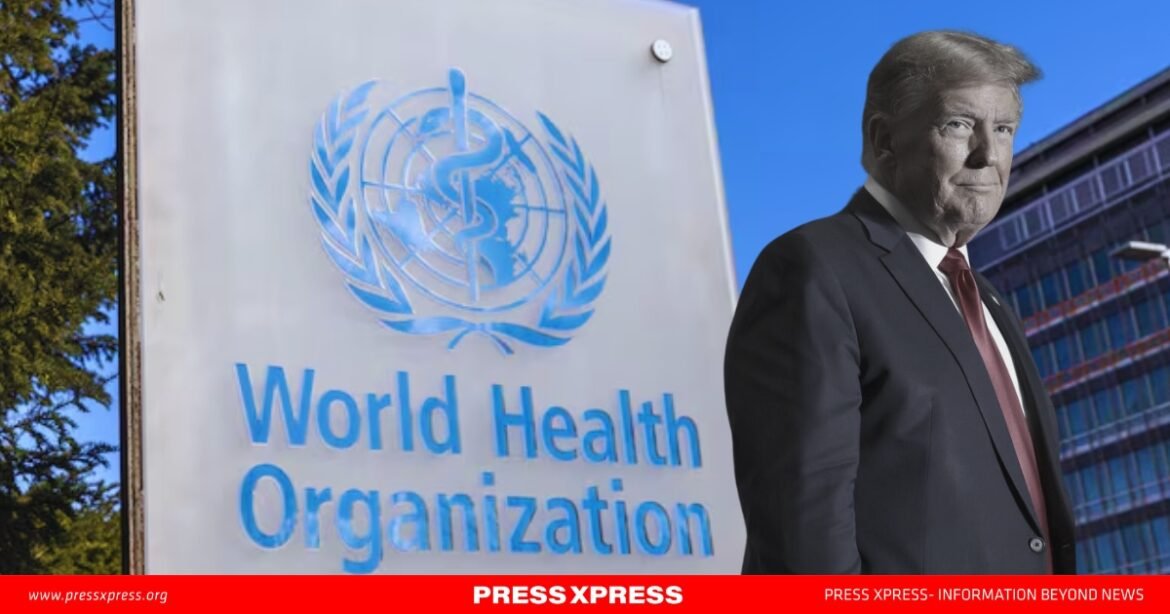Key Highlights:
Severe Financial Impact: US withdrawal would strip the WHO of nearly a quarter of its budget, crippling global health programs and pandemic response
Global Health Risks: Isolation from the WHO could leave the US vulnerable to cross-border health threats, weakening its access to vital data and resources
Reform Opportunity: The move could pressure the WHO to adopt reforms for greater accountability and transparency, potentially reshaping global health governance
The possibility of Donald Trump withdrawing the United States from the World Health Organization (WHO) raises critical questions about the ramifications for global health governance and the future of the organization itself. As the top financial contributor, the US plays a pivotal role in the operations and influence of the WHO. A US withdrawal, therefore, would have significant consequences for both parties and the global health landscape.
Financial and Structural Impacts on WHO
The WHO relies heavily on its 196 member states for funding, with the US contributing nearly a quarter of its assessed contributions and making substantial voluntary donations. In the current funding cycle alone, the US has already contributed approximately $1 billion. Losing this financial support would create a severe budgetary shortfall for the WHO, potentially crippling its ability to coordinate health programs, manage disease outbreaks, and implement health policies.
To compensate, other member states would need to increase their contributions, which may not be politically or economically feasible for many. Alternatively, the WHO would have to reduce its operations, risking setbacks in global health initiatives, particularly in low-income countries where the organization’s impact is most pronounced.

Figure 01 illustrating the contributions to the WHO by major member countries, with the United States leading significantly.
Moreover, the WHO’s funding structure is already problematic, with over 70% of its budget tied to donor-directed contributions. This dependency has led to a donor-driven agenda, raising concerns about the organization’s autonomy. The US withdrawal could exacerbate these structural vulnerabilities, forcing the WHO to become even more reliant on a narrower pool of contributors, such as the Bill & Melinda Gates Foundation, which is already the second-largest donor.
Strategic and Operational Implications for Global Health
The withdrawal would undermine the WHO’s ability to effectively monitor and respond to global health threats. The US, with its advanced health research infrastructure, has been instrumental in pandemic preparedness and response. Its collaboration with the WHO in areas such as vaccine development, disease surveillance, and data sharing has been critical. Without US participation, global efforts to address emerging health crises, such as the H5N1 avian influenza, would suffer, leaving the world less prepared to combat transnational health challenges.
Furthermore, the US would lose its “enormous influence” in shaping global health policies and standards. This isolationist stance could limit access to vital scientific data and hinder collaboration during disease outbreaks, putting American lives at risk. As Lawrence Gostin, a professor of global health law and director of the WHO Collaborating Center on Public Health Law and Human Rights at Georgetown University, US aptly noted, “Preventing novel pathogens from crossing our borders simply is not [something the US can do alone].”
Potential Strategic Opportunities and Reforms
While a withdrawal could weaken the US-WHO relationship, it might not sever it entirely. The US could continue to support specific programs through voluntary contributions, as non-governmental organizations and charities often do. This approach would allow the US to retain some influence over the organization’s activities, albeit in a more limited capacity.
Trump’s decision to withdraw could also be a strategic maneuver to pressure the WHO into adopting reforms. The organization’s performance, particularly during the COVID-19 pandemic, has faced widespread criticism, not only from the US but also from other member states. Trump’s reputation as a dealmaker could drive negotiations for a more accountable and transparent WHO, aligning with his stated objectives of prioritizing US interests while addressing global health needs.
Broader Implications for Global Health Governance
The US withdrawal would highlight broader vulnerabilities in global health governance, emphasizing the need for more sustainable and equitable funding models. It could prompt other member states and stakeholders to rethink their reliance on a few major donors and push for reforms that enhance the WHO’s resilience and autonomy.
At the same time, the move risks undermining multilateralism and weakening international cooperation in addressing shared health challenges. The WHO’s mission to achieve “health for all” depends on collective action, and the absence of the US—a key player in global health—would be a significant setback for this goal.
Conclusion
The potential withdrawal of the US from the WHO under Donald Trump would be a “strategic mistake” with far-reaching consequences. It would strain the WHO’s financial resources, weaken its operational capacity, and compromise global health security. For the US, the move would represent an “own goal,” diminishing its influence and leaving it vulnerable to global health threats.
However, the situation also presents an opportunity for both parties to negotiate reforms that could strengthen the WHO’s effectiveness and restore mutual trust. By prioritizing collaboration over isolation, the US and the WHO could achieve a “win-win” outcome, benefiting not only the organization and its member states but also the broader global health community.


